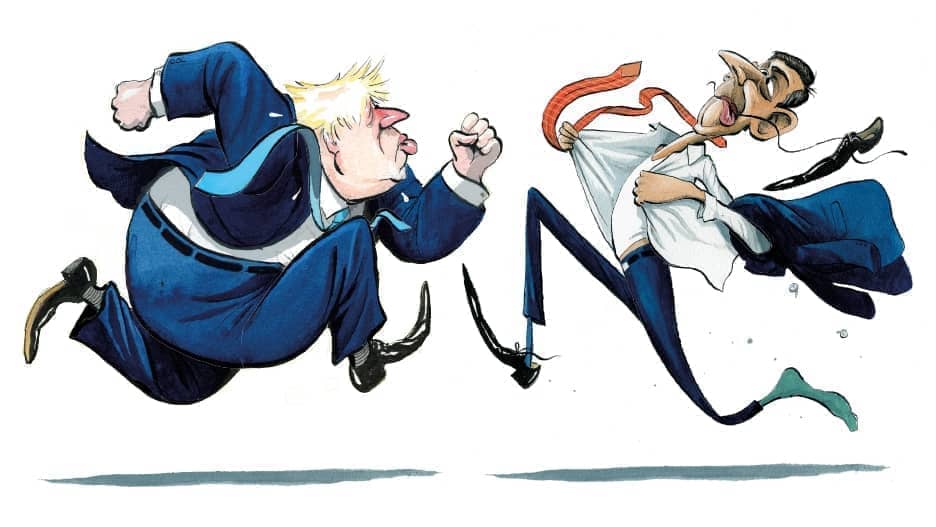Boris Johnson was finally thrown out of Downing Street because of his handling of sexual misconduct allegations by a political ally. Dozens of ministers quit his government over his lack of integrity. He remains subject to an investigation that could see him suspended from parliament for dishonesty. Dozens of Conservative MPs believe he is the best person to lead their party and Britain.
The Bring Back Boris movement confirms that the Conservative party is now unleadable. Whoever ends up as prime minister next week will be unable to command a reliable majority of the party’s MPs. This puts a major question mark over any Conservative government’s ability to deliver the fiscal tightening, as well as the economic and institutional changes required to reassure the bond markets.
The Bring Back Boris movement confirms that the Conservative party is now unleadable
The fact that a significant number of Conservatives are supporting Johnson as PM again means there are two scenarios that can follow the leadership election.
First, Johnson gets onto the final ballot of members and wins. His return to Downing Street would prompt significant numbers of Conservatives to refuse to serve in his government; some would quit the party altogether. Major doubts would immediately be raised over the Johnson government’s willingness to deliver Jeremy Hunt’s programme of cuts and reforms, which are needed to persuade the Office for Budget Responsibility that the public finances are back on a sustainable path. Gilt yields would rise again.
Second, Johnson does not reach the final ballot and the next Prime Minister is Rishi Sunak. His arrival in Downing Street would prompt significant numbers of Conservatives who backed Johnson to refuse to serve in his government or support his agenda. At least some of those Tories would subscribe to narratives of betrayal and conspiracy against Johnson: the fairy-story of an election-winning hero denied his rightful place by a technocratic establishment is already being written by some. When the Sunak-Hunt team attempted to deliver that programme of cuts and reforms to win over the OBR and the markets, at least some Johnsonite MPs would resist. Gilt yields would rise again.
I am a non-Tory and a centrist who runs a cross-party think tank. I favour fiscal responsibility and credible economic institutions. I’m also a former political reporter with strong feelings about politicians who lie and cheat. Unsurprisingly, I think the second of the two scenarios I’ve described above is less bad than the first. But they are both very bad outcomes, because Britain is governed by a divided and unleadable party. Political instability and elevated gilt yields will persist until that central fact is changed. Only a general election would resolve that.







Comments